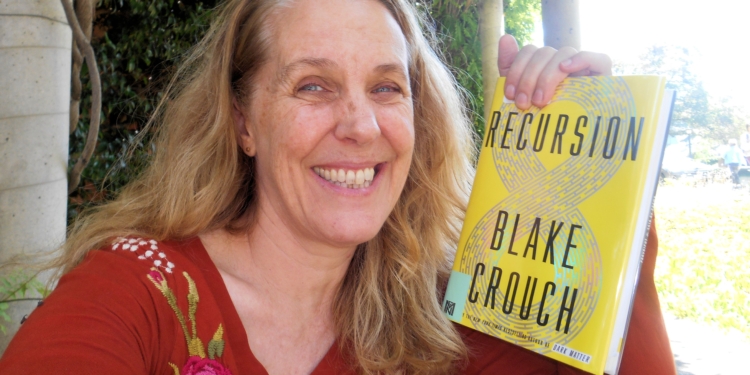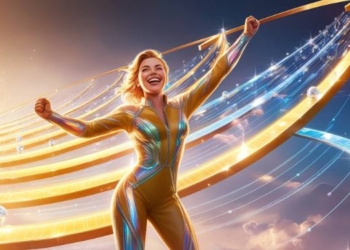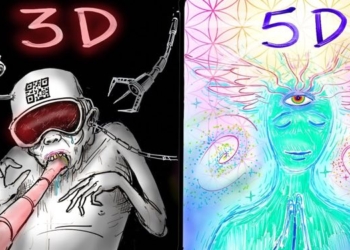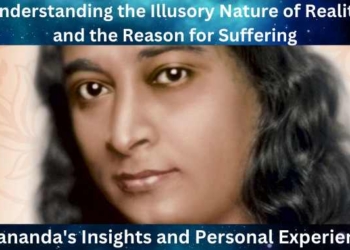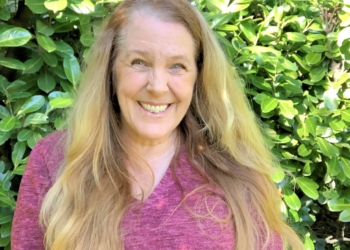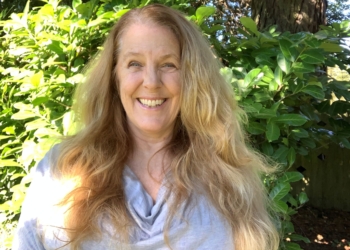
Can implanted memories create new realities?
Blake Crouch's new book, Recursion is a fast-paced thriller that explores how new memories might be implanted in humans, might create reality.
Studies published in 2015 showed that new memories were implanted in mice while they sleep. Karim Benchenane and colleagues at the Industrial Physics and Chemistry Higher Educational Institution in Paris, France targeted place cells in mice. Researchers monitored ‘place cells' in mice that fire in response to being in or thinking about a specific place, while mice walked in an enclosed area. Later, when the mice slept, researchers recognized when specific place cells fired–and at the exact moment when those neurons activated, stimulated brain areas associated with rewards in the sleeping mice. When the mice awoke, they walked directly to places newly associated with rewards.
In Recursion, Blake Crouch invites us to contemplate what would happen if we had access to technology that could allow us to go back and relive moments in our lives–this time doing something differently. Could we benefit from having access to the ability to get do-overs? Might changes in what we remember influence all of reality?
 False Memory Syndrome (FMS)
False Memory Syndrome (FMS)
Within the world-view of Recursion, there is a phenomenon called “False Memory Syndrome,” or FMS. Characters collectively and simultaneously recall other parallel possible ‘time-lines' or reality paths. This occurs when someone re-remembers an event from the past utilizing a technological ‘chair' device. While an individual experiencing a revised memory literally ‘goes back in time' to experience reliving their life that is now slightly different from what ‘actually occurred' as a younger version of themselves, the rest of the world also gets ‘reset' to that previous point in time, and then begins rolling forward in time. In Recursion, only the person who goes back in time has the ability to consciously revise history, since during their ‘do-over' they are the one who knows what might have been that is now being changed.
Differences between ‘Recursion' and Real Life
While ‘Recursion' uses the term ‘reality shift' throughout the story, with frequent mention of Mandela effects, these reality shifts are not exactly the same as what I have seen. The reality shifts and Mandela Effects in “Recursion' operate as one-agreed-upon-objective-reality, rather than the subjective (not always in agreement) realities that starting this year in 2019 are beginning to be experimentally proven in quantum physics laboratory tests. Subjective reality is at the very heart of reality shifts and Mandela Effects, such that not everyone agrees upon any given reality shift, including the one involving Nelson Mandela that the Mandela effect was named after.
‘Recursion' requires some kind of technology to operate in order for someone's memories–and thus all of reality–to be changed. While some might argue that technology must be responsible for the Mandela effect and reality shifts, there are those of us who recognize evidence of humanity's experiences with reality shifts going back to the dawn of human civilization, and beyond.
Physics Experiment Challenges Objective Reality
Scientific experimental research published in 2019 provides evidence that observers can witness the same event differently: two people can observe the exact same event, see two different things happen, and both be correct. Scientists Massimiliano Proietti at Heriot-Watt University in Edinburgh and Caslav Brukner at the University of Vienna, Austria provide real-world evidence that two observers who are unaware of each other's observations and measurements occurring at exactly the same physical place and time can witness two completely different realities. The implication is that our assumptions of ‘one shared objective reality' is inaccurate. The experience of subjective realities match and reflect what experiencers of reality shifts and Mandela effects actually witness.
We appear to be witnessing numerous examples in Nature of subjective realities, which thanks to our long-standing bias of presuming objective reality has gone mostly unnoticed so far. A newfound recognition of the presence of quantum logic operating as the larger ‘universal set' with a smaller, simpler subset of Boolean logic and classical physics operating within seems to be closer to the truth of how reality operates.
Can We Get Do-Overs?
Many people ask me how they can get some kind of do-over–some way to go back in time and relive past events, to ensure they play out differently. While technology is now being developed that can connect our memories with new feelings–such as rewarding feelings–I've not yet seen any indicators of people re-living their lives over the course of many days, weeks, months, or years. We certainly can reset our emotional state of mind (with or without technology to assist), but these resets are not (yet!) literally taking us back to be younger versions of ourselves all over again.
Memories Create Reality
Recursion did get point us in a fascinating and quite probably right direction: memories likely do have causative influence on physical reality. Those who've experienced some of the most profound reality shifts and Mandela Effects often witness reality shifts in keeping with what is needed and required–along the lines of what author PMH Atwater calls Future Memory. By recognizing that we can–and often do–connect with memories of possible futures and pasts, we can align ourselves with these other possible realities, and literally step out of one sequence of events into another. We thus do not so much ‘relive' past experiences as walk between worlds, as I describe in my book, Reality Shifts.
I invite you to watch the companion video to this blog post at:
___________________________
 Cynthia Sue Larson is the best-selling author of six books, including Quantum Jumps. Cynthia has a degree in Physics from UC Berkeley, and discusses consciousness and quantum physics on numerous shows including the History Channel, Gaia TV, Coast to Coast AM, the BBC and One World with Deepak Chopra and on the Living the Quantum Dream show she hosts. You can subscribe to Cynthia’s free monthly ezine at: https://www.RealityShifters.com
Cynthia Sue Larson is the best-selling author of six books, including Quantum Jumps. Cynthia has a degree in Physics from UC Berkeley, and discusses consciousness and quantum physics on numerous shows including the History Channel, Gaia TV, Coast to Coast AM, the BBC and One World with Deepak Chopra and on the Living the Quantum Dream show she hosts. You can subscribe to Cynthia’s free monthly ezine at: https://www.RealityShifters.com


